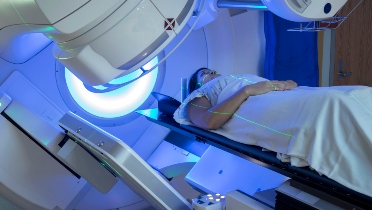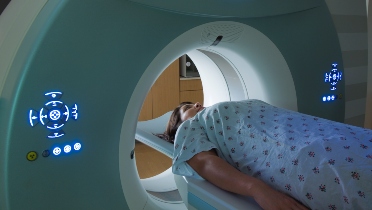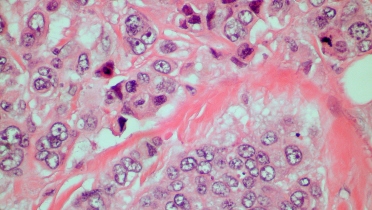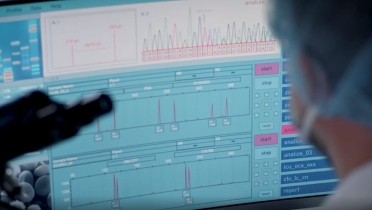Tucatinib Plus Trastuzumab Emtansine Extend PFS in Late-Stage HER2-Positive Breast Cancer
Tucatinib plus trastuzumab emtansine lengthened progression-free survival (PFS) in patients with unresectable metastatic or locally advanced HER2-positive breast cancer compared with trastuzumab emtansine alone, according to findings presented at the 2023 San Antonio Breast Cancer Symposium.
In an earlier trial, HER2CLIMB, researchers reported that trastuzumab and capecitabine prolonged both PFS and overall survival in heavily pre-treated patients with metastatic breast cancer, leading to the FDA approval of tucatinib, trastuzumab, and capecitabine for advanced or metastatic HER2-positive breast cancer.
The phase 3 HER2CLIMB-02 trial included 463 patients with unresectable, locally advanced or metastatic HER2-positive breast cancer. The researchers randomly assigned patients to receive either trastuzumab emtansine plus placebo (n = 235) or trastuzumab emtansine plus tucatinib (n = 228). Nearly half of patients (44.1%) had brain metastases at the beginning of the trial.
Patients assigned to both tucatinib and trastuzumab emtansine had a median PFS of 9.5 months, whereas the placebo and trastuzumab emtansine group had a PFS of 7.4 months. Overall, patients assigned to the combination of the two therapies were 24.1% less likely to experience disease progression or death compared to the placebo group.
The median PFS for patients with brain metastases at baseline was 7.8 months for those assigned to the combination therapy versus just 5.7 months for those assigned to placebo plus trastuzumab emtansine, the researchers wrote. Among those with brain metastases, patients assigned to the tucatinib combination had a 36.1% lower risk for disease progression or death.
Patients assigned combination therapy had higher rates of adverse events, including events related to liver function and gastrointestinal function than those assigned placebo and trastuzumab emtansine. The researchers said these adverse events could be managed with monitoring and clinical intervention.
“This study is one of very few large breast cancer studies prospectively designed to evaluate novel systemic therapies in patients with brain metastases. While there is much interest in improving outcomes for patients with HER2-positive breast cancer brain metastases, most studies evaluating systemic agents have been limited by a small size, a retrospective design, or an exploratory analysis of a larger study.”
- Sara Hurvitz, MD, FACP, professor and head of the division of hematology and oncology at the University of Washington department of medicine and senior vice president and director of the clinical research division at Fred Hutchinson Cancer Center, Seattle.
--
References:
Disclosures: Hurvitz declared financial ties to drug makers. See abstract for details. HER2CLIMB was supported by Seagen. HER2CLIMB-02 is being supported by Seagen.
By Andrew John, MD /alert Contributor
Photo Credit: Getty Images.















.jpg)

.jpg)
.jpg)
.jpg)
.jpg)
.jpg)

.jpg)

.jpg)
.jpg)

.jpg)
.jpg)
.jpg)

.jpg)

.jpg)
.jpg)
.jpg)
.jpg)
.jpg)
.jpg)
.jpg)
.jpg)
.jpg)

.jpg)


.jpg)
.jpg)
.jpg)

.jpg)
.jpg)
.jpg)

.jpg)

.jpg)

.jpg)
.jpg)
.jpg)
.jpg)

.jpg)
.jpg)
.jpg)

.jpg)
.jpg)
.jpg)
.jpg)

.jpg)
.jpg)

.jpg)

.jpg)
.jpg)
.jpg)
.jpg)
.jpg)

.jpg)
.jpg)

.jpg)
.jpg)
.jpg)
.jpg)
.jpg)
.jpg)
.jpg)
.jpg)
.jpg)
_.jpg)
.jpg)
.jpg)
.jpg)



.jpg)

.jpg)

.jpg)
.jpg)
.jpg)
.jpg)


.jpg)

.jpg)

.jpg)
.jpg)
.jpg)
.jpg)
.jpg)



.jpg)
.jpg)
.jpg)
 Featured Breast Cancer Videos
Featured Breast Cancer Videos.jpg)